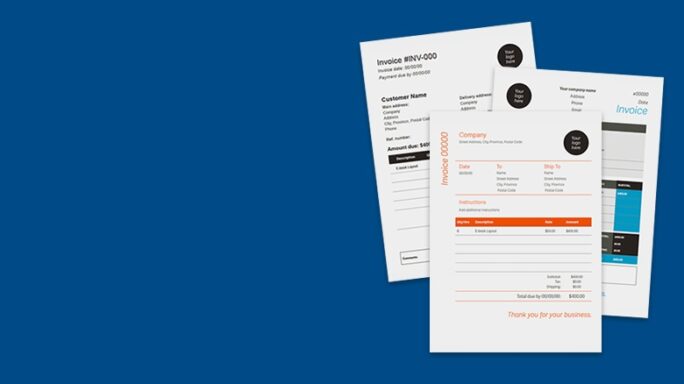Money Matters
Want to get paid on time? Here’s what you need to do

We all know there’s one thing you must do in business – and that’s get paid. So, it makes sense that getting paid on time is the route to happiness. You’ve worked hard developing a product or service and you’ve worked doubly hard selling it to a customer before sending them an invoice. Job done, you might think. Well, not quite.
Invoices need to be converted to cash and deposited in your bank account, cash that will subsequently pay your bills, your staff, any other costs and then you. Promptly paid invoices ensure a smooth and simple cash flow.
However, on some occasions, you’ll find that you need to chase a customer so you get paid, which equals time lost on building your business. And you’re not alone on that. In fact, 17% of all payments to UK small and medium businesses are late. Meanwhile, they spend 15 days a year chasing late payments.
Strict payment policy
Now, you might be lucky and deal with a company that has a strict payment policy. You both come to an agreement, let’s say 30 or 60 days, and bingo: the due date arrives and in goes your money. If you have customers like this, you should treat them well because they are worth a great deal.
The above is how it should work but unfortunately, many companies will use their suppliers to fund their business, which builds lines of credit. The companies receive your goods, sell them, collect the money and then delay on paying you.
Other businesses (many are public companies) will sit on money at certain at times of the year, so they can show a positive balance sheet. This may happen before financial reports, when analysts will want to see how much cash the company has in hand.
If you regularly deal with the problems above, you should ask yourself: is it worth it? If you suspect you are being used as a pawn in their game, make sure you are comfortable with it.

Keep communicating with your customers – that will help you get paid on time
Be realistic with your customers
On the other hand, you must be realistic. Some customers occasionally pay a few days late but, while the excuses might wear thin, they always pay. In that case, it might be unwise to kick up a fuss. Ultimately, it comes down to your gut instinct.
It pays to know your customer, which is especially true if you are offering them credit via an invoice with terms. Once you offer credit, the relationship has gone up a notch. You are accepting the risk that they might delay payment for so long that it hurts your cash flow – or might not pay at all.
Don’t risk going under
You shouldn’t take on a customer under just any terms. It’s easy to say but if you do that, you risk your business going under. So listen to what your gut instinct is saying about a company or individual.
If it’s a big name, you have a degree of comfort, because they operate in the public spotlight and any supplier disagreements might generate media attention. Just do your research: Google them and see what’s being said or, if you can, speak to other suppliers.
Just because they are a blue chip company, doesn’t mean they won’t play a game with you. With smaller companies, it’s harder to do checks, so it’s essential that you feel comfortable with supplying to them. If it doesn’t feel right, take a long hard look before you jump and commit.
Stay alert with your invoices
Once the invoice is in, it’s a different ball game. The customer now has the advantage. When this happens, you need to stay alert. Don’t forget when your invoice is due. Before the due date, find some reasons to stay in touch with the person who bought your goods or services. Don’t disappear, because the people who get paid are often the uppermost in the payer’s mind.
So, stay on their radar. This is easier with a smaller company, as the representative could have a fair degree of say when it comes to who gets paid. Dealing with the ‘paid ledger’ team within a big company is harder, but it’s still worth finding a way to stay in touch.
If you reach payday without being paid, contact the customer and politely ask why. Terms are there for a reason and they should be honoured by both parties.
So ask why your invoice has not been paid, and don’t let them get away with not giving you a reason, and when they plan to pay it. This must be done diplomatically because you might want them as a repeat customer, and it’s very hard to bully someone to pay you if they already have a queue of people to pay. Always be firm, but polite.
Professional invoice templates
Getting paid on time is vital. Download our set of professional, VAT-compliant invoice templates to make sure you make a good impression and get paid faster.

Tips on setting terms to get paid on time
Paul Donno, the managing director of 1 Accounts, says: “Getting paid faster is really important for your cash flow, I would set your terms up at the outset and stick to them. If your terms are 30 days, stick to 30 days, if your terms suit your business at seven days stick to seven days, don’t give extended credit.
“Also look at ways you can get paid quicker, where you are in control, so use Stripe for credit card payments, use GoCardless for direct debit, these are all big tools you can use that are very cheap to use and will definitely increase your cash flow.”
Rob Higgs is a mechanical sculptor from Cornwall. He makes sculptures out of mainly rusty bits of junk and all sorts of metal and sells them around the world. His creations fall anywhere between sculpture, art and science.
When it comes to getting paid faster, Rob has a refreshing view which will work for some businesses, but not all. He says: “I generally just go for trusting that they will pay, it’s always worked. Generally, just a two-stage payment thing, again I could spend a lot of time and effort working out whether that leaves me in a negative cash flow situation.
“All these sorts of things I should probably be doing, but the time it takes spending doing that, I’d rather maybe lose some money and not waste those hours of my life pouring over the problem. I generally just ignore them, and everyone’s been kind and honest with me.
“I invoice at the end of a job, or if it’s a big job, I’ll break it into one, two, three stage payments, what they feel comfortable with. But I just trust that they will pay, if they don’t, I nag them a bit. I just don’t want to waste time. Any focus on the money for me is taking away the whole point and the joy of life.”
Dealing with awkward situations
Rob claims he uses a “different accounting system” to many other businesses. He says: “I trust them because there is no other way someone else could finish, or fix the job, or maintain it. If there was a sort of awkward situation, I could just blackmail them, they’ve paid me and I’m the only person who could possible deliver. So, it’s easy to trust in that context.”
He adds: “The biggest companies are always the slowest payers and always the ones trying to get out of it. That’s just the way it is, and they need a lot more nagging than the small companies, who pay immediately and never quibble.”
Rob might think he has a different accounting system but, in reality, he faces the same issues as all companies and has adapted an approach that works for both his business and his clientele.
Now, it’s time to ask, which approach will you take to get paid on time? Feel free to share your stories on getting paid faster in the comments below.





Ask the author a question or share your advice